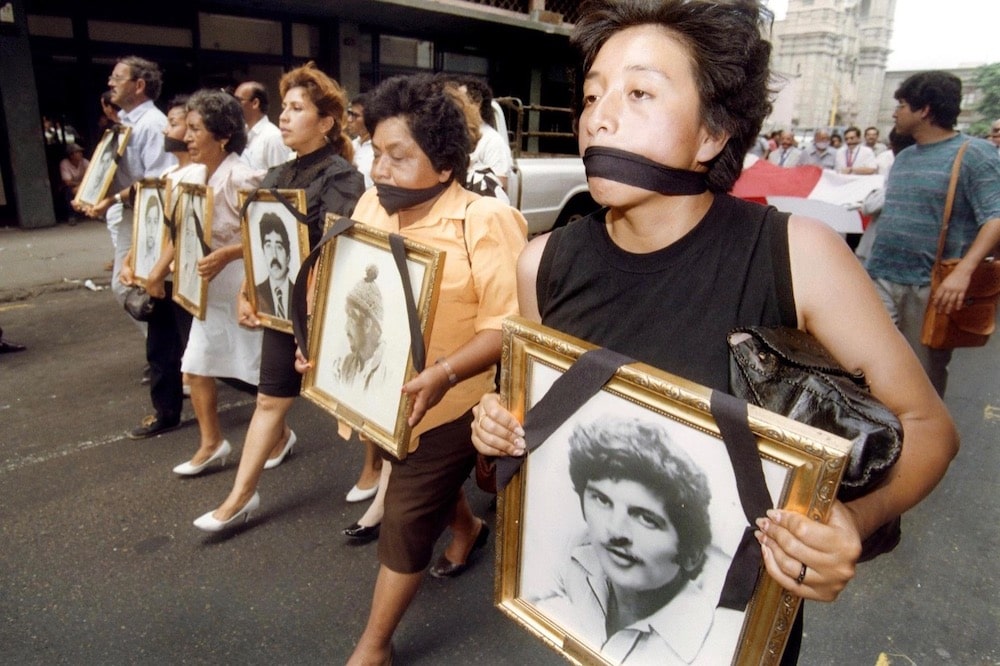Americas: A free expression round up produced by IFEX's Regional Editor Laura Vidal, based on IFEX member reports and news from the region.
World Press Freedom Day saw IFEX members in the Americas discuss and denounce the most challenging obstacles to freedom of expression. Meanwhile, Paraguay presented a new bill aimed at protecting journalists, Peru won a battle against impunity, Bolivia pushed back against yet another attempt to control social media, and Ecuador saw its investigative journalists pushed into exile due to violence.
Raising voices for free expression
On World Press Freedom Day (WPFD), IFEX members in the Americas participated in a number of initiatives and activities devoted to the defence of freedom of expression and people’s rights to access information. Organisations presented new reports and highlighted the many challenges journalists and human rights defenders are confronting in the region.
Voces del Sur, in collaboration with other organisations including Abraji, FLIP and ARTICLE 19 Mexico and Central America, presented the Shadow Report (“Reporte sombra”) – its name chosen to underscore that it complements or highlights what official data tends to lack. The report described 2022 as the most violent for the press in Latin America in the last five years. It also draws attention to multiple cases of sexual violence against women journalists that occurred, with 20 cases in the region.
In Venezuela, Espacio Público presented its 2022 report, noting the crackdown against opposition and critics, including politicians and all those who dare to speak out to bring visibility to what is happening in the country. Meanwhile, in Colombia, FLIP pointed to the many setbacks the region has suffered, including an increasing number of journalists killed in the exercise of their work, and many others threatened and attacked.
Threats to media freedom mark WPFD in Mexico and Peru
Sadly, marking WPFD did not stop initiatives aimed at limiting freedom of the press in the region, nor attacks against human rights organisations.
On the day itself, the Peruvian congress put a bill on the agenda to discuss increasing penalties for defamation – which was subsequently approved.
IFEX member ARTICLE 19 Mexico and Central America, which has been a defender of media freedom and an advocate for government transparency in Mexico for over a decade, was threatened by Mexico’s president Andrés Manuel López Obrador in his daily broadcast on 3 May. Obrador said he had reached out to President Biden and had called for the United States Agency for International Development (USAID) to cease its funding to civil society organisations critical of the government.
IFEX and IFEX-ALC signed a joint statement in support and in solidarity, urging Mexican authorities to thoroughly investigate the threats and attacks made against ARTICLE 19 Mexico and Central America.
Paraguay: a new bill to protect journalists
It has not been all bad news, however. Paraguay’s long and difficult struggle for freedom of expression and justice took a step forward with the Paraguayan Press Union’s (SPP) submission of a new bill aimed at protecting journalists. This followed the decision by the Inter-American Court of Human Rights to hold the Paraguayan state responsible for failing to guarantee journalist Santiago Leguizamón’s right to life and freedom of expression, and for not providing access to justice and protection for his family.
Leguizamón, director of Radio Mburucuyá, was murdered in 1991 after receiving numerous death threats for his reporting work on drug trafficking near the border city of Pedro Juan Caballero.
It is expected that the bill will advance other efforts that have been taking place for years to promote journalists’ safety in the country. During its 2016 Universal Periodic Review (UPR) – in which IFEX-ALC also participated – the Paraguayan state had accepted recommendations for the creation of a special commission in the Public Prosecutor’s Office to bring to justice those responsible for attacks against journalists and human rights defenders. Progress has been minimal, and responses from the state slow; more measures need to be taken to ensure justice and accountability in unsolved cases. However, the SPP considers the state’s commitment to investigating attacks against journalists and the presentation of a bill to protect journalists and human rights defenders as a promising step toward ending impunity.
Perú: “No one escapes justice”
In a long-awaited verdict, Daniel Urresti, a former military officer and politician in Peru, has been sentenced to 12 years in prison for his involvement in the 1988 murder of journalist Hugo Bustíos. This represents a significant victory for press freedom and human rights in a country that has seen many journalists face threats and attacks for doing their work and that continues to face important challenges in terms of freedom of expression.
Bustíos was reporting on human rights violations committed by terrorist groups and the military during Peru’s internal armed conflict when he was killed. Urresti was accused of ordering his assassination, which he has consistently denied.
The landmark verdict is an important reminder of the crucial role that journalists and civil society organisations play in defending human rights and promoting accountability and transparency. For Peru’s ANP president, Zuliana Lainez, it also sends a strong message to those who commit crimes against journalists: “Twenty, even thirty years can pass, but no one escapes justice.”
Bolivia: Legislation suspended after protests
In Bolivia, proposed legislation aimed at controlling social media sparked protests by civil society organisations and journalists, who saw it as an attempt to limit free speech and suppress dissenting voices. The legislation would require social media companies to provide the government with the personal information of users suspected of disseminating disinformation or hate speech, and stipulates heavy fines and imprisonment for those found guilty of violating the proposed law.
The ruling party decided to withdraw the proposed law following the outcry. A victory, and a significant one, though ongoing attempts to control people’s free expression online were noted by local digital rights organisation Internet Bolivia, which called on civil society and journalists to remain vigilant.
Ecuador: violence pushes journalists into exile
The danger to journalists in Ecuador from organised crime, worsened by government inaction, is prompting some to flee the country in search of safety. In a context of growing threats and attacks – including exploding flash drives – the departure of journalist Karol Noroña in March following death threats was yet more evidence of the vulnerability of media workers.
Noroña’s case is not an isolated one. Shortly after the announcement of her departure, another case – their identity is being kept anonymous to protect their safety – came to light. This other individual reportedly endured eight months of death threats before leaving Ecuador.
There is growing concern not only over government inaction, but also over its complicity in attacks on press freedom. The government’s failure to investigate and prosecute those responsible for attacks on journalists is supporting a culture of impunity. Last March marked the fifth anniversary of the killing of Paúl Rivas, Javier Ortega and Efraín Segarra from newspaper El Comercio. There are still no answers on the Ecuadorian side; in Colombia, two people have been sentenced.
The exodus of journalists has not only had a profound impact on those forced into exile. The loss of experienced investigative journalists and the looming threat of violence for others reporting on sensitive issues could damage the country’s media landscape, and along with it, people’s right to information.
IFEX-ALC joined Fundamedios in a public statement urging authorities to honour the commitments they have made to address the issue through meetings with local and international organisations. The groups also highlighted that journalists “are not just another victim of the insecurity in the country, rather they are directly targeted by organised crime groups.”
In brief
Some media outlets in Canada and the US left Twitter after being labelled as “government-funded media”. Canada’s CBC and United States’ NPR decided to leave the platform, at least temporarily, as the labelling suggested there were doubts as to the independence of these organisations. The decision to go silent on Twitter was intended to protect the networks’ credibility and their ability to produce journalism without “a shadow of negativity,” according to NPR’s chief executive.
The Association of Caribbean Media Workers (ACM) and IFEX-ALC signed a joint statement condemning the intimidation of journalists in Guyana and called on the government “to urge its supporters to refrain from intimidatory behaviour.” This was a response to harassment and cyberbullying directed towards Kaieteur News reporter Davina Bagot, as well as against the president of the Guyana Press Association and vice-president of the ACM, Nazima Raghubir.
Violence in Haiti has taken another journalist’s life. Dumesky Kersaint from Radio Télé Inurep was killed on 16 April, south of Port-au-Prince. The 30-year-old journalist used to cover social protests. The Committee to Protect Journalists is also investigating the death of journalist Ricot Jean, who was killed under murky circumstances on 25 April. At least seven journalists were killed in Haiti in 2022, including five in direct connection with their work.



